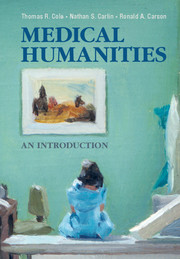Book contents
13 - Ways of Knowing
from Part III - Philosophy and Medicine
Summary
To speak of clinical medicine as human medicine is no mere gloss: it calls less for the ingenious conceptual grasp of episteme . . . than for a kind of discernment (phronesis) characteristic of the knowledge that human beings have of other human beings – rooted in long experience, cultivated in years of practice.
– Stephen ToulminAbstract
This chapter explores the principal theories of knowledge that are at work, and sometimes at odds, in the practice of medicine. Beginning with a discussion of Cartesian rationalism and the ideal of objective and dispassionate observation, it examines how theories of interpretive, imaginative, empathic, and narrative knowledge can supplement the knowledge derived from biomedical science. Then, with a focus on clinical practice, it considers two vignettes in which doctors move past the model of detached objectivity and instrumentality toward a dialogical and collaborative attempt to discern the elusive sources of patient suffering.
INTRODUCTION
What do we know and how do we know it? How can we be certain that what we know is true? These are epistemological questions about the sources and validity of knowledge. Two principal theories of knowledge, or ways of knowing, are at work, and sometimes at odds, in medicine: the way of biomedical science, and that of clinical practice.
- Type
- Chapter
- Information
- Medical Humanities , pp. 213 - 224Publisher: Cambridge University PressPrint publication year: 2014



